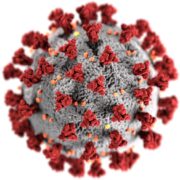COVID Testing
Updated January 6, 2022

Covid Program
COVID testing includes testing for the presence of the virus or looking for immune response (antibody) to the virus. Each test has its benefits, risks, and pitfalls.
Looking for the virus involves looking for it’s molecules (home Binax test) or genetic markers that requires a lab (PCR). The spike protein antibody can be detected after vaccine and natural immunity. The nucleocapsid antibody (see LabCorp and Quest below) only occurs after natural infection. The FDA clearly states that the quantity of spike protein antibody can not be used to assess strength of immunity or need for booster.
Natural immunity also involves a non-antibody “cellular” immunity, in which cells, not molecules, maintain the memory of the infection. There are constant and complex interactions between the antibody (B-cell) and cellular (T-cell) immune systems.
The duration and magnitude of immune response, whether to vaccine or natural infection, with most viruses (including measles, polio, flu, etc.) varies based on numerous factors. These factors include the features of the virus itself (such as how quickly in mutates into variants) and the features of the individual being exposed to the virus. Immune responses are weaker in the elderly, those with immune system compromise, and those with certain deficiencies and toxicities. As of this date, the duration and quality of protection against current and future strains of COVID provided by vaccine and natural infection is not known.
As of 10/14/2021, here is the latest antibody test information from LabCorp and Quest:
Quest Diagnostics COVID antibody testing 2021_10_14
ICD-10 Code for COVID-19 is U07.1
See these guidelines from the CDC
CDC-COVID-19-coding-guidelines-final
2022 ICD-10-CM Diagnosis Code U07.1_ COVID-19.oor

